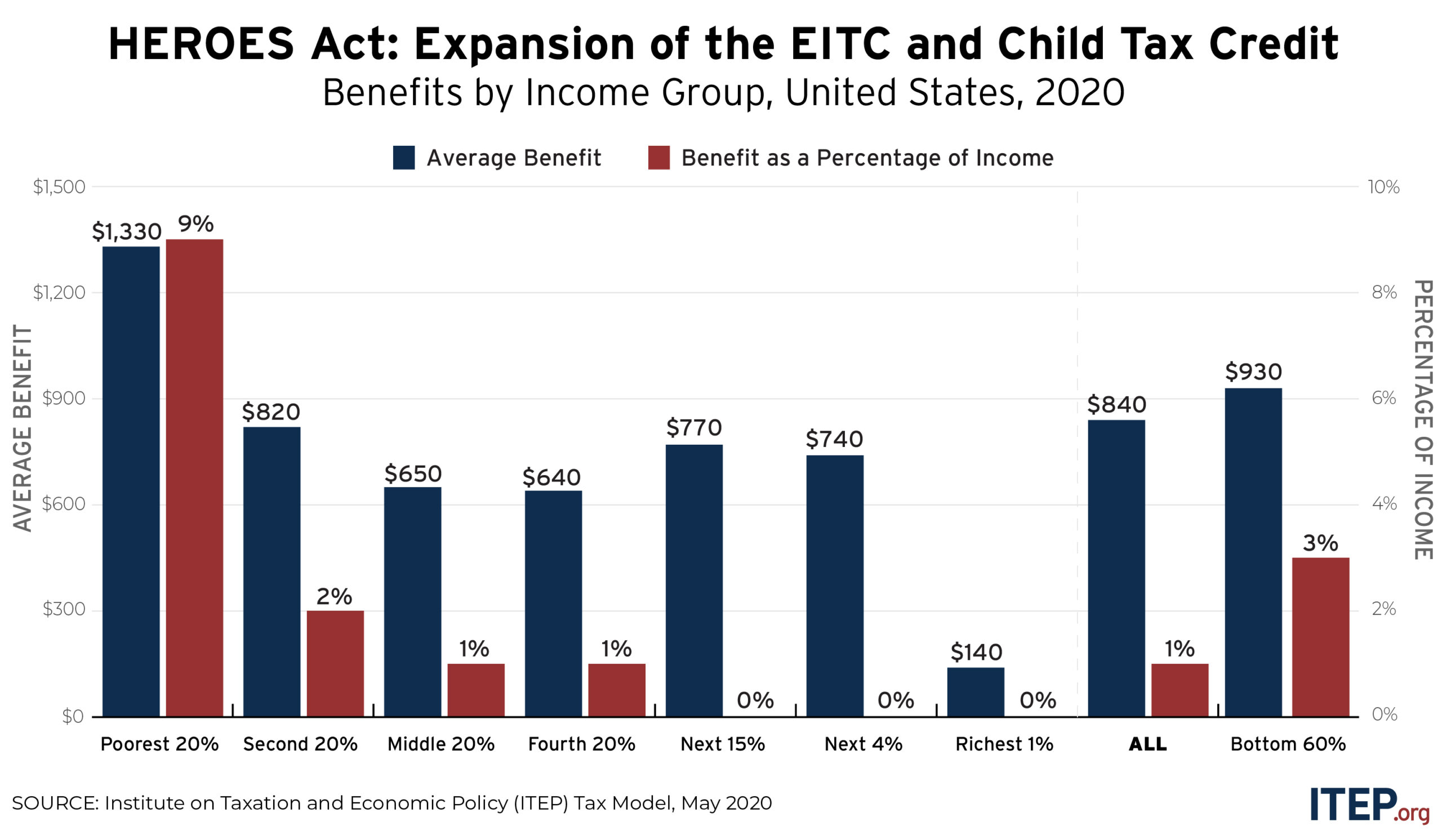National and State-by-State Data Available for Download
On May 15, Democrats in the House of Representatives passed the Health and Economic Recovery Omnibus Emergency Solutions (HEROES) Act providing several types of relief to address the COVID-19 crisis. Among other important provisions, the HEROES Act includes reforms to the Earned Income Tax Credit (EITC) and Child Tax Credit (CTC) to make these tax credits more effective in helping working people and helping parents afford the costs of raising children.
Improvements to the EITC
The HEROES Act would nearly triple the maximum Earned Income Tax Credit (EITC) available to workers without children in the home from $538 to about $1,437, lower the age eligibility for the childless credit from 25 to 19, and raise the upper age limit from 65 to 66.
The bill also eliminates a provision that makes individuals ineligible for the EITC if they have a small amount of investment income.
And, it adds flexibility to the EITC by allowing taxpayers to use their 2019 or 2020 earnings to calculate the credit (ITEP did not model this change).
Improvements to the Child Tax Credit
The HEROES Act would also temporarily increase the Child Tax Credit (CTC) from $2,000 per child to $3,000 for each child age 6 and older and to $3,600 for each child younger than age 6. The HEROES Act would also make the CTC fully refundable, eliminating both the dollar cap on the refundable portion and the requirement to have at least $2,500 in earnings. Seventeen-year-olds would also be eligible for the credit (but ITEP did not model this change).
Reforms Are Mostly Targeted to Those Who Need Help
The proposed improvements to the EITC are well-targeted to help working people, as is making the CTC fully refundable and removing the earnings requirement. Increasing the credit amount is a boost to low- and middle-income families, but to a degree also helps the well-off because, under current law, the CTC does not begin to phase out until families reach very high income levels ($400,000 for families headed by married couples).
Many lawmakers have sought to expand the EITC and CTC or even replace them with much larger credits. ITEP has analyzed 10 different proposals along these lines over the past year, an indication that this has become a mainstream position for many in Congress.






